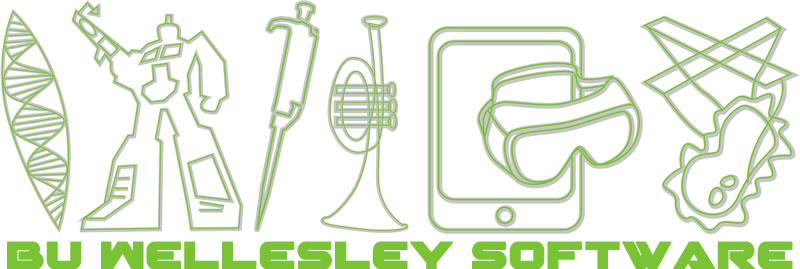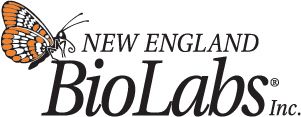Team:BU Wellesley Software
From 2011.igem.org
(Difference between revisions)
| (22 intermediate revisions not shown) | |||
| Line 48: | Line 48: | ||
text-align: left; | text-align: left; | ||
line-height:120%; | line-height:120%; | ||
| - | color: # | + | color: #958E8E; |
font-size: 12pt; | font-size: 12pt; | ||
} | } | ||
| Line 55: | Line 55: | ||
<link rel="stylesheet" type="text/css" href="http://cs.wellesley.edu/~hcilab/iGEM_wiki/css/Team.css"> | <link rel="stylesheet" type="text/css" href="http://cs.wellesley.edu/~hcilab/iGEM_wiki/css/Team.css"> | ||
| + | |||
| + | <style type="text/css">@import "http://cs.wellesley.edu/~hcilab/iGEM_wiki/css/videobox.css";</style> | ||
</head> | </head> | ||
| Line 104: | Line 106: | ||
Check out what we have so far on the site. More content will be coming soon!~<br></div>--> | Check out what we have so far on the site. More content will be coming soon!~<br></div>--> | ||
| - | |||
| - | |||
| - | |||
| - | |||
<!-- | <!-- | ||
| Line 136: | Line 134: | ||
<br> | <br> | ||
| - | <h3><div class="intro_greeting">Synthetic biology will require a multidisciplinary, collaborative design environment in order to engineer the complex biological systems of the future. Our team has created a collection of software tools which address specific technical synthetic biology challenges while simultaneously advancing the way in which users interact with computing environments. Our software workflow comprises "G-Nome Surfer Pro" for research, "Trumpet" and "Optimus Primer" for design, and " | + | <h3><div class="intro_greeting">Synthetic biology will require a <a href="https://2011.igem.org/Team:BU_Wellesley_Software/Project_Overview"> multidisciplinary, collaborative design environment </a> in order to engineer the complex biological systems of the future. Our team has created a collection of software tools which address specific technical synthetic biology challenges while simultaneously advancing the way in which users interact with computing environments. Our software workflow comprises <a href="https://2011.igem.org/Team:BU_Wellesley_Software/G-nomeSurferPro"> "G-Nome Surfer Pro" </a> for research, <a href="https://2011.igem.org/Team:BU_Wellesley_Software/Trumpet"> "Trumpet" </a> and <a href="https://2011.igem.org/Team:BU_Wellesley_Software/OptimusPrimer"> "Optimus Primer" </a> for design, and <a href="https://2011.igem.org/Team:BU_Wellesley_Software/Puppetshow"> "Puppetshow" </a> and <a href="https://2011.igem.org/Team:BU_Wellesley_Software/eLabNotebook"> "eLabNotebook" </a> for the construction of those designs. In addition, we incorporated <a href="https://2011.igem.org/Team:BU_Wellesley_Software/Wet_Lab"> wetlab experimentation </a> into our project to apply these tools to create novel biological systems to investigate Tuberculosis. The combination of human computer interaction, bio-design automation, and experimental design makes our effort unique in the iGEM experience and closes the loop on the design-build-test methodology. |
<br></h3> | <br></h3> | ||
| + | |||
| + | <!--trying a vid box--> | ||
| + | <h2>Videos</h2> | ||
| + | <div class="videobox"> | ||
| + | <ul> | ||
| + | <li><a href="http://www.youtube.com/watch?v=ms4EIkvIHyo">G-nome Surfer Pro & Optimus Prime</a></li> | ||
| + | <li><a href="http://www.youtube.com/watch?v=UjO7HGFZ1sQ&feature=player_embedded">Trumpet</a></li> | ||
| + | <li><a href="http://www.youtube.com/watch?v=QVR1NaciNmo">PuppetShow</a></li> | ||
| + | |||
| + | </ul> | ||
| + | </div> | ||
| + | <script type="text/javascript" src="http://cs.wellesley.edu/~oshaer/prototype.js"></script> | ||
| + | <script type="text/javascript" src="http://cs.wellesley.edu/~oshaer/videobox.js"></script> | ||
| + | |||
<!--Welcome to our site!--><br></div> | <!--Welcome to our site!--><br></div> | ||
| - | <br><br> | + | <!--<br><br><br><br><br><br>--> |
<p> | <p> | ||
<img src="http://cs.wellesley.edu/~hcilab/iGEM_wiki/images/sponsorlogos/Autodesk_logo_blk_L.png" width="90px"> | <img src="http://cs.wellesley.edu/~hcilab/iGEM_wiki/images/sponsorlogos/Autodesk_logo_blk_L.png" width="90px"> | ||
Latest revision as of 17:19, 27 October 2011
Welcome!

Synthetic biology will require a multidisciplinary, collaborative design environment in order to engineer the complex biological systems of the future. Our team has created a collection of software tools which address specific technical synthetic biology challenges while simultaneously advancing the way in which users interact with computing environments. Our software workflow comprises "G-Nome Surfer Pro" for research, "Trumpet" and "Optimus Primer" for design, and "Puppetshow" and "eLabNotebook" for the construction of those designs. In addition, we incorporated wetlab experimentation into our project to apply these tools to create novel biological systems to investigate Tuberculosis. The combination of human computer interaction, bio-design automation, and experimental design makes our effort unique in the iGEM experience and closes the loop on the design-build-test methodology.
Videos
Videos








 "
"
